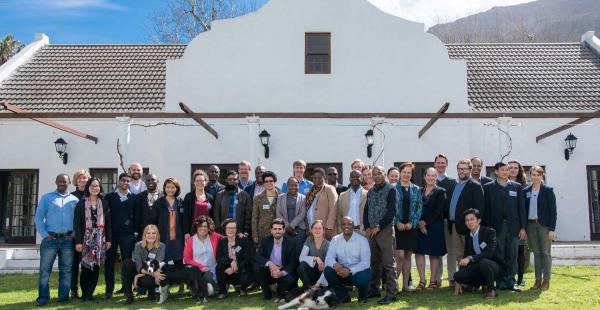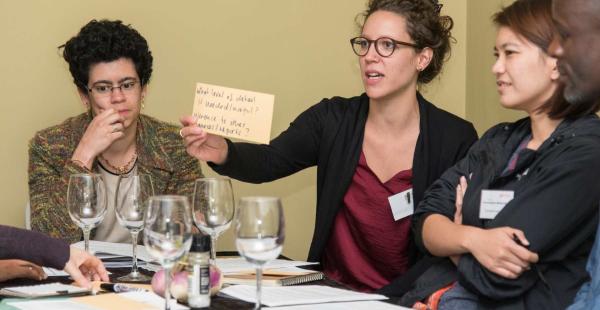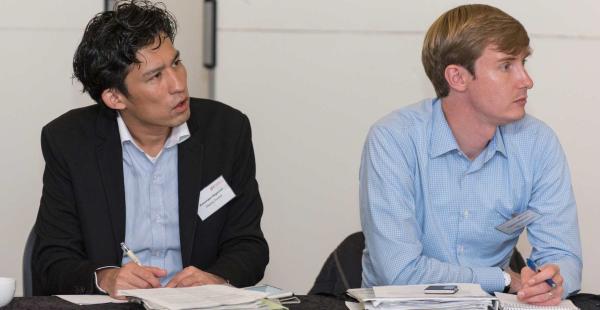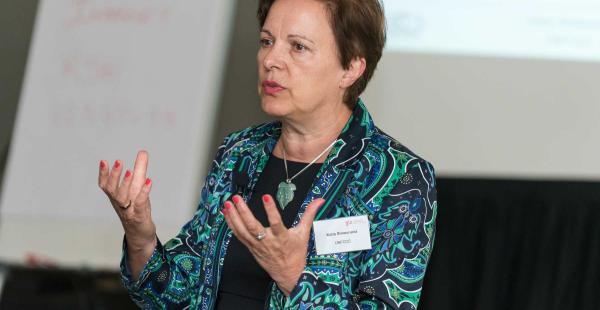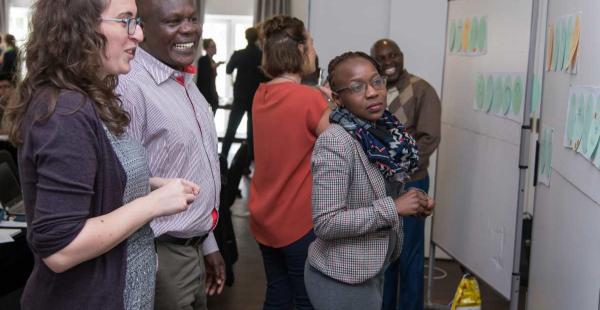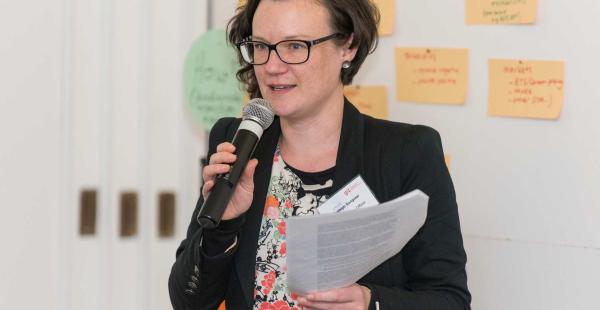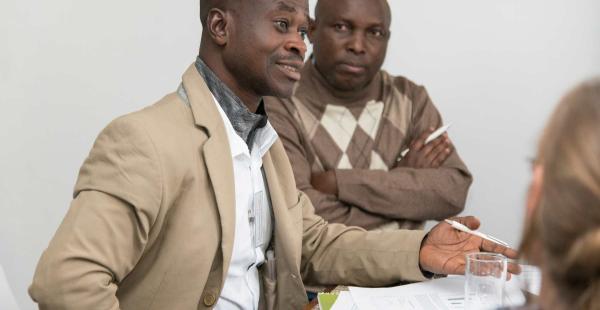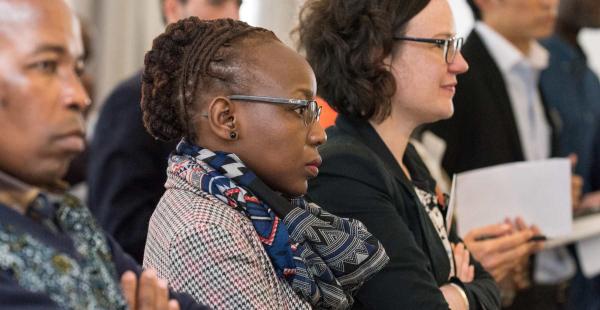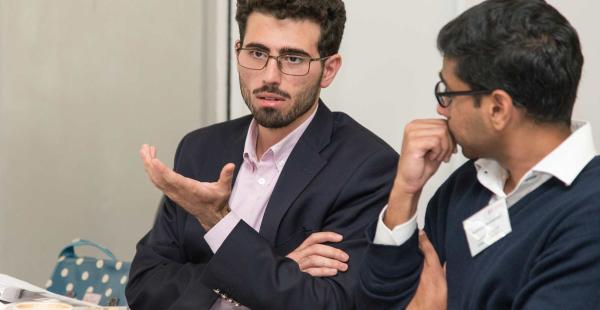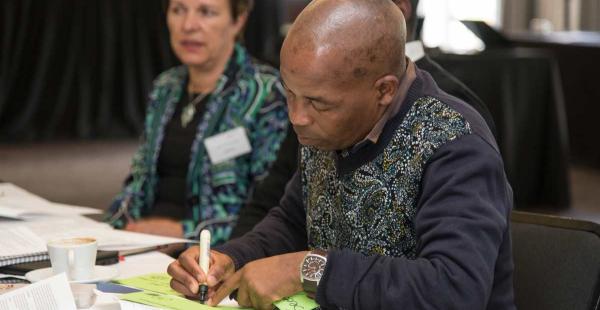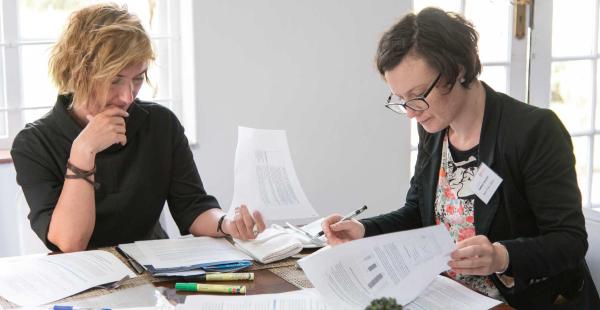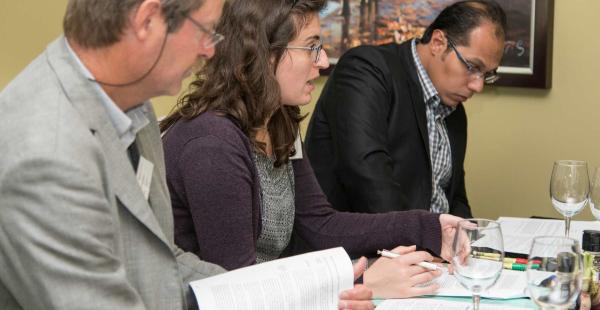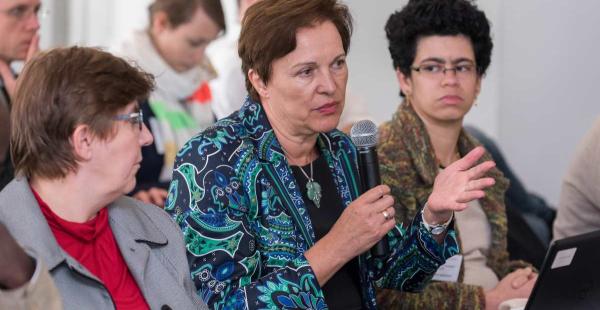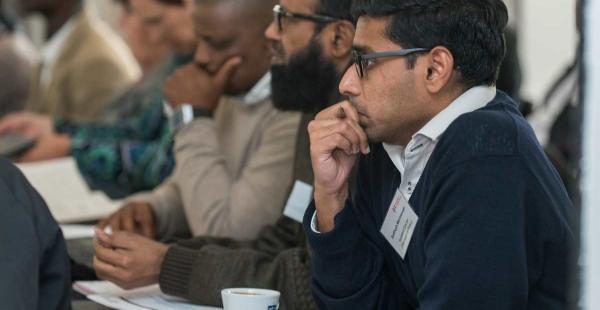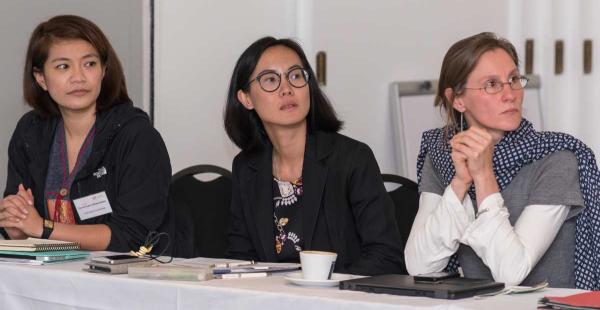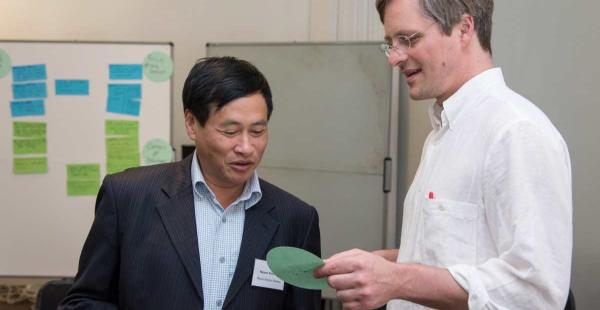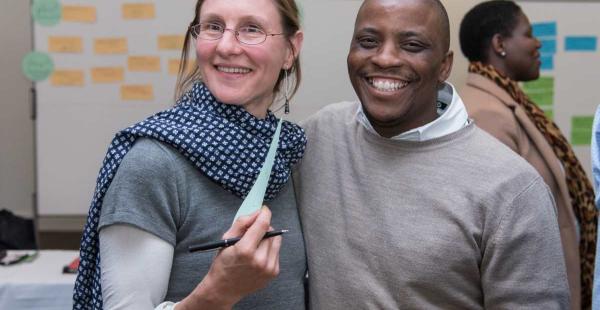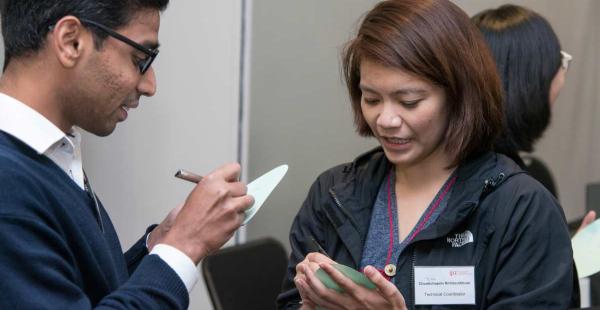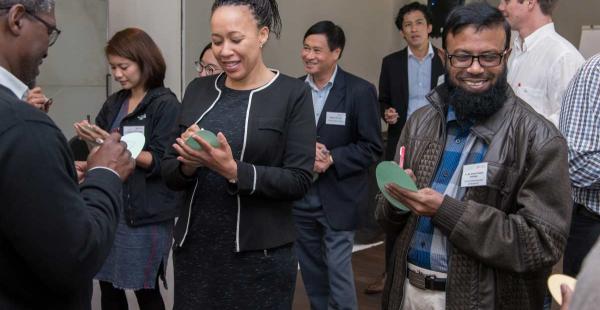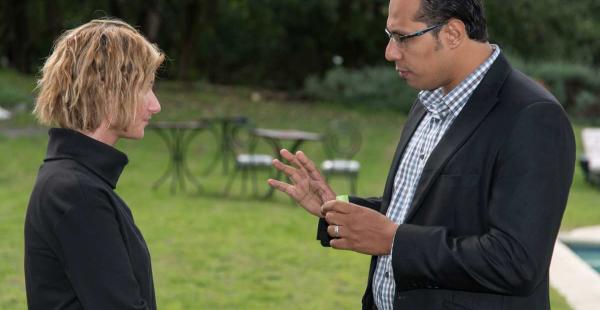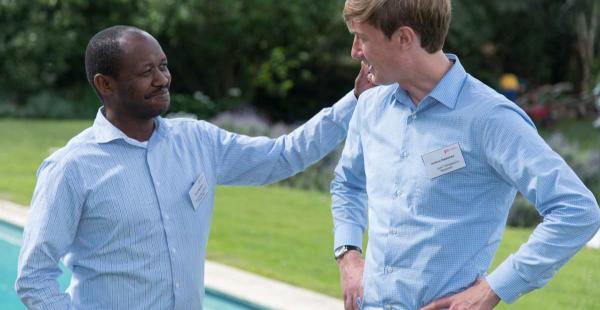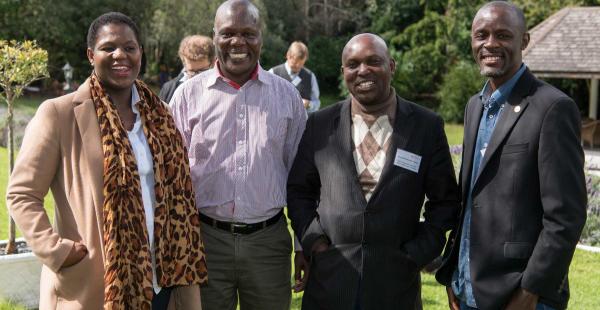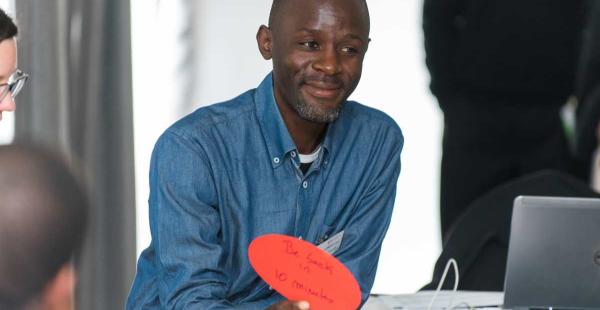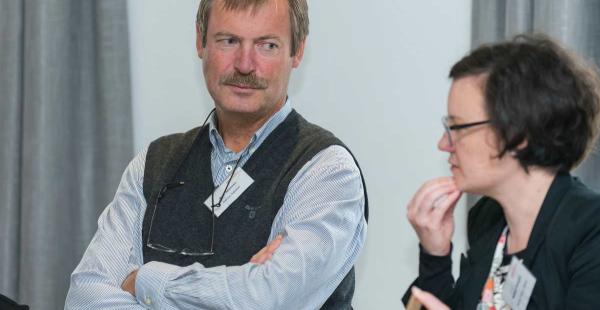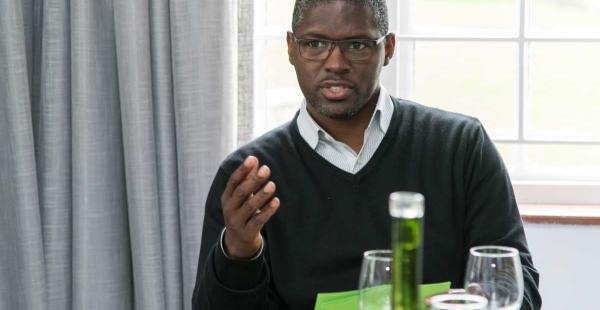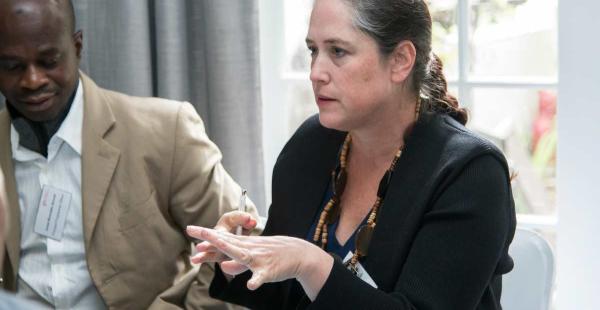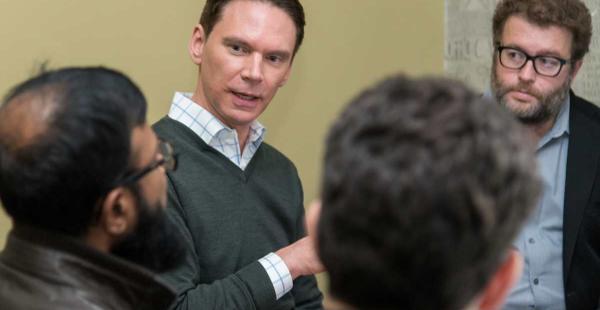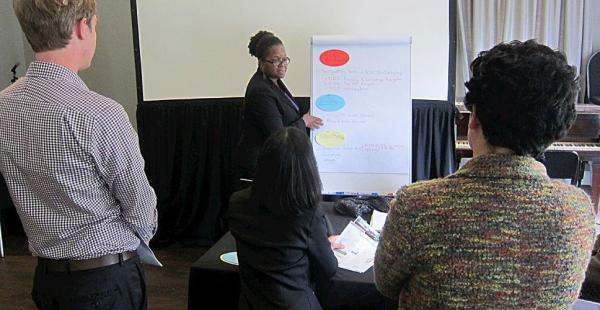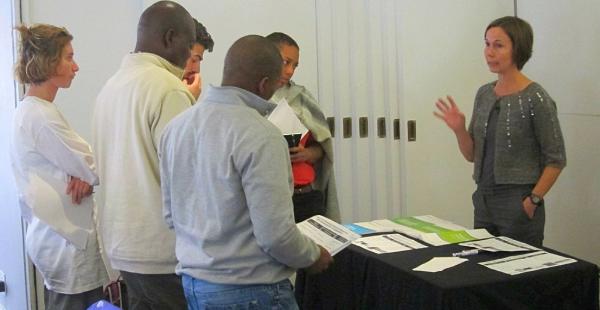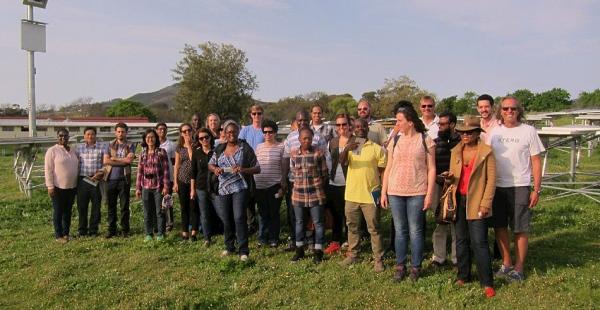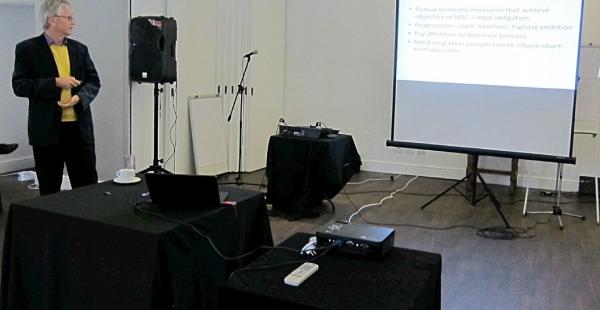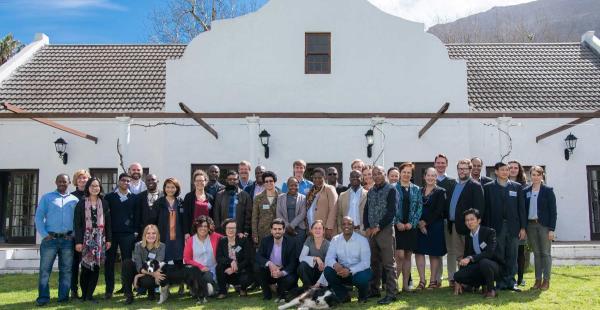
Annual Partnership Retreat: discussions on NDCs and transparency (31 August - 7 September, Cape Town, South Africa)
From 31 August to 7 September 2016, 32 participants from 22 developing and developed countries came together in Cape Town to discuss the route ‘From MRV to an enhanced transparency framework in the context of NDC implementation’ among each other and with representatives from the UNFCCC Secretariat, the field of science and research, and implementing organisations.
The Retreat was designed to
- enable analysis of the latest developments in the UNFCCC negotiations and help understand the implications of the Paris Agreement for national policy implementation;
- provide a space for open exchange on political positions and for sharing experience with national implementation;
- facilitate sharing and dissemination of good practice in the implementation of nationally determined contributions (NDCs) and transparency systems among countries, science and research and implementation agencies, while at the same time encouraging more ambitious climate action and advancing its implementation;
- deliver insight for UNFCCC negotiations, including through lessons learned.
During the six intense days of the workshop, the input, discussions and group work sessions centred on the following topics:
- taking stock after the Paris Agreement, focusing on the enhanced transparency framework (ETF) and nationally determined contributions (NDCs)
- Financing NDC implementation
- NDCs: transparency, features and accounting
- global stocktake (GST)
- ETF
- flexibility and capacity building related to transparency
In the sessions, participants reflected on the content of the Paris Agreement, exchanged perspectives on the decisions, discussed topics to address in coming negotiations to further elaborate on the decisions, and shared experiences related to national implementation.
Participants also learned about South African climate initiatives at different levels. On the evening of 1 September 2016, the German Embassy and the South African Department of Environmental Affairs (DEA) invited the participants of the Retreat as well as stakeholders from the national climate policy arena to a reception. Here, representatives at national government level as well as from the Provincial Government of the Western Cape and from the City of Cape Town shared information on their climate initiatives.
In addition, on Sunday, 4 September, the participants visited three climate projects on greening social housing, smart agriculture and renewable energy in the Cape Town area. All the projects are supported by WWF South Africa.
The Annual Partnership Retreat was hosted by DEA and organised by the Deutsche Gesellschaft für Internationale Zusammenarbeit (GIZ) GmbH on behalf of the German Federal Ministry for the Environment, Nature Conservation, Building and Nuclear Safety (BMUB).
You can dowload the agenda and the report on the right. For all presentations, including those from the evening reception, please follow the links below.
Presentations
Day 1
Katia Simeonova, (UNFCCC Secretariat): NDCs and the Enhanced Transparency Framework
Malte Meinshausen, (University of Melbourne): INDCs submitted with a view on the global goal
Harald Winkler, (Energy Research Centre): Putting the Paris Agreement into practice (focus on NDCs and transparency)
Adelard Mutombo (Democratic Republic of the Congo): Status of NDC (re-) submission and operationalising of the (I)NDC
Nguyen Khac Hieu, (Vietnam): Submit and implement (I)NDC
Adelard Mutombo (Democratic Republic of the Congo): Status of NDC (re-) submission and operationalising of the (I)NDC Adelard Mutombo (Democratic Republic of the Congo): Status of NDC (re-) submission and operationalising of the Nguyen Nguyen Khac Hieu (Vietnam): Nguyen Khac Hieu (Vietnam): ard Mutombo (Democratic Republic of the Congo): Status of NDC (re-) submission and operationalising of the (I)NDC
Day 2
Richard Sherman, (SSN): Financing NDC implementation
Antwi-Boasiako Amoah (Ghana): Challenges and solutions for mobilising the private sector
Rebecca Carman, (UNDP): Transparency of (I)NDCs
Katia Simeonova, (UNFCCC Secretariat): Status of developing further guidance on features of the NDC
Evening reception:
Thapelo Letete, (South Africa): South Africa's climate change mitigation action thus far
Goosain Isaacs, (South Africa): Western Cape climate change response
Sarah Ward, (City of Cape Town): Cape Town Energy and Climate Change
Day 3
Yamide Dagnet, (World Resources Institute): Effectively undertaking the global stocktake (part 1)
Brian Mantlana, (South Africa): Effectively undertaking the global stocktake (part 2)
Anke Herold, (Öko Institute): Analysing (INDCs): what options for accounting arise?
Day 4
Ana Danila, (European Union): The enhanced transparency framework: an analysis of the Paris Agreement
Gonçalo Cavalheiro, (CAOS): Provisions on flexibility in the enhanced transparency framework
Edwin Saliba (Lebanon): Flexibility in the enhanced transparency framework
Day 5
Anwar Hossain Howlader, (Bangladesh): Building capacity for transparency
Ekaterine Mikadze (Georgia): Building capacity for transparency
Dustin Schinn (Global Environment Facility): The capacity building initiative for transparency
Karen Holm Olsen, (UNEP DTU): Information on the Initiative for Climate Action Transparency
Tuangporn Prasertsin (Thailand): Building capacity for transparency


